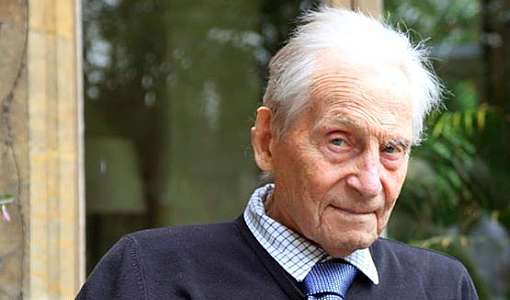Being a Catholic used to be incompatible with being a member of Selwyn College. Now, one of our fellows — John Morrill — is a Catholic priest; but it wasn’t an easy path for him. He tells us about his academic and spiritual journey.

Selwyn was an Anglican foundation, created by the Church of England to maintain its traditions as the university in the late 19th century opened itself to other religions. As recently as the 1950s, it was a requirement of the college for new students to show their baptism certificate as part of matriculation; but the mastership of Owen Chadwick, himself a great churchman, accelerated the transformation to the college of all faiths that we know today. But it was still not an easy road that I travelled.
I joined Selwyn from Oxford via a year at Stirling in Scotland on 1 September 1975. I had been a solid Anglican, as Owen Chadwick knew, but I had had a crisis of faith, which he did not know, and I was an agonised agnostic, being very angry with God for not existing. I had been taken in by ‘Death of God Theology’ as preached by the deans of Trinity and Emmanuel. I had thrown myself into good works with Discharged Prisoners’ Aid Societies and as a Probation Volunteer helping long-term offenders adjust to life after prison.
With new babies arriving, I did not continue with this once in Cambridge, but found solace in college Evensong. Although until not long before 1975 students who converted to popery were quietly given free transfers to other colleges, in 1975 Selwyn elected its first Catholic Fellow, Andrew Jones.
This made things easier when in Holy Week 1977 I had a conversion experience at the Requiem Mass of a Dominican friar I had known well in Oxford. I had shared my angry doubts and felt peace each time I did so. The church at his funeral was full of that peace and in an instant I realised that when I had spoken to him I had spoken to God. I sought out the Catholic chaplain and was received after nine months of instruction. Owen Chadwick asked me to offer my resignation as a Fellow (while saying he would decline to accept it) and I refused. He never held it against me but when I took over David Harrison’s Tutorial side in 1979, the theologians were taken away and given to a lapsed Anglican tutor, which stung. Still I was given more and more responsibility in the college and in the parish of Newmarket where I had settled. By the early 1990s, I felt I was being called to witness more fully to my faith. I was constantly talking about ethical issues with tutorial pupils during the AIDS crisis and was also counselling those considering abortion, or experiencing sexual betrayal or bereavement.

But I had to leave God out of these conversations which frustrated me. At the same time, taking holy communion into care homes, and especially a home for those with advanced dementia, had given me a profound sense of sacramental grace. Somehow I felt a deep need to put these together. In trying to make sense of this, one day I blurted out to my then parish priest that would being an ordained deacon be possible? It was. After three years of formation, I was ordained two weeks after my 50th birthday in June 1996.
I wanted to do prison ministry at weekends, but successive bishops wanted me to oversee adult education in the diocese and a weekend a month teaching in a seminary and that proved a satisfying ministry for 27 years. After the death of my wife Frances in 2007, the bishop asked me to consider priesthood and my head told me to consider it. But my heart was cold to it. My daughters, having lost their mother, were opposed; also I could be deacon professor but not a priest-professor. I still had things to do as an historian. I said no. But at 75 I decided I was jaded and had done all I could. Three things then happened in quick succession that said unequivocally that there was one more job I was called to. I spoke to the bishop and after 18 months of private study I was ordained priest in September 2024.
Like coming to Selwyn in 1975, like becoming a Catholic, like becoming deacon, becoming a priest has been coming home to a place I did not know. I am sure it was meant to be.

